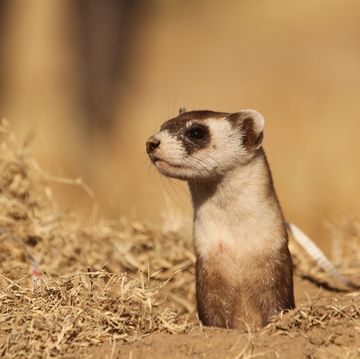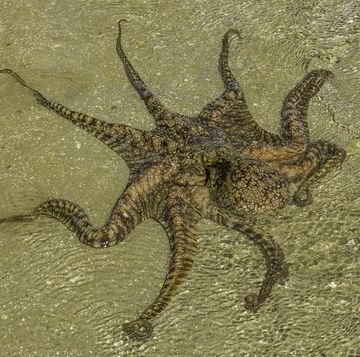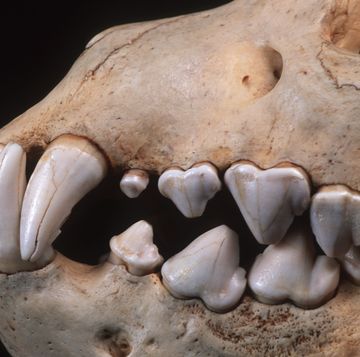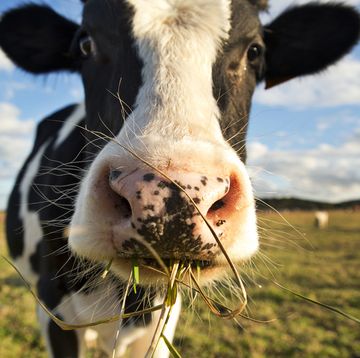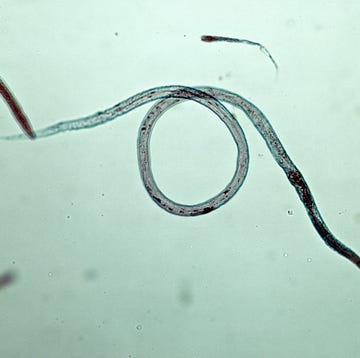- By switching up the way a placenta was formed, researchers successfully cloned a rhesus monkey.
- The monkey has lived to adulthood, reaching 2 years of age.
- Scientists say this work is important to help humans with drug testing and behavioral research.
If Dolly the sheep were still alive, she’d have a friend in Retro, a 2-year-old rhesus monkey who was successfully cloned in China.
Amidst very low success rates for cloning primates, Chinese scientists published a paper in Nature Communications detailing just how they made the process work. The team switched from a normal embryo to using a placenta in order to help bring Retro to life and allow a cloned rhesus monkey to reach adulthood for the first time ever.
The effort tweaks the approach used on Dolly the sheep and a slate of other mammals since 1996. As reported by Nature, replacing the placenta of the cloned embryo with one created using in vitro fertilization limited the kinds of developmental defects that pose survival risks for the cloned animals. The researchers believe the new technique not only speeds up the process, but reduces risks.
“We could produce a large number of genetically uniform monkeys that can be used for drug-efficacy tests,” Mu-ming Poo, director of the Institute of Neuroscience in the Chinese Academy of Sciences in Shanghai, told Nature.
But lets keep our hopes in check. The new method probably won’t produce a bounty of cloned monkeys, as researchers admit that it still has a low success rate.
Ever since Dolly entered the international zeitgeist in 1996, scientists have used the technique used to bring her into the world—known as somatic cell nuclear transfer (SCNT), which is the process of transplanting nuclei from adult cells into an egg—on more than 20 different animals. The only problem is that the process doesn’t actually work very well, especially on primates. Along the way, SCNT has a tendency to introduce a range of developmental defects.
The Shanghai team from the Chinese Academy of Sciences wanted to figure out a way to improve on SCNT, and landed on a process called intracytoplasmic sperm injection (ICSI). This worked slightly better, with 113 cloned rhesus monkey embryos resulting in 11 implantations into seven surrogates. The effort yielded two pregnancies—one with twins that died on day 106 of gestation, according to Nature, and (of course) Retro.
Not a high rate of success, with less than 1 percent of cloned embryos reaching life, but success all the same.
“These discoveries provide valuable insights into the reprogramming mechanism of monkey SCNT and introduce a promising strategy for primate cloning,” the authors wrote.
Scientists remain keen on cloning monkeys, largely with the hope that they can use these creatures to improve human life. While the process is controversial, cloned monkeys might represent our best chance at modeling how diseases work in humans, allowing for the testing of drugs and treatments.
Not everyone is convinced, however, in the usefulness of the work. “There is no immediate application for this study,” a spokesperson for the UK’s Royal Society for the Prevention of Cruelty to Animals told the BBC. “We are expected to assume that human patients will benefit from these experiments, but any real-life applications would be years away and it is likely that more animal ‘models’ will be necessary in developing these technologies.”
Regardless of potential use case, effort leads Lluis Montoliu, a researcher at the Spanish National Center for Biotechnology not involved in the Chinese study, to conclude two things. “First it is possible to clone primates,” he said in a statement. “And second, no less important, it is extremely difficult to succeed with these experiments.”
One down, many to go.
Tim Newcomb is a journalist based in the Pacific Northwest. He covers stadiums, sneakers, gear, infrastructure, and more for a variety of publications, including Popular Mechanics. His favorite interviews have included sit-downs with Roger Federer in Switzerland, Kobe Bryant in Los Angeles, and Tinker Hatfield in Portland.


